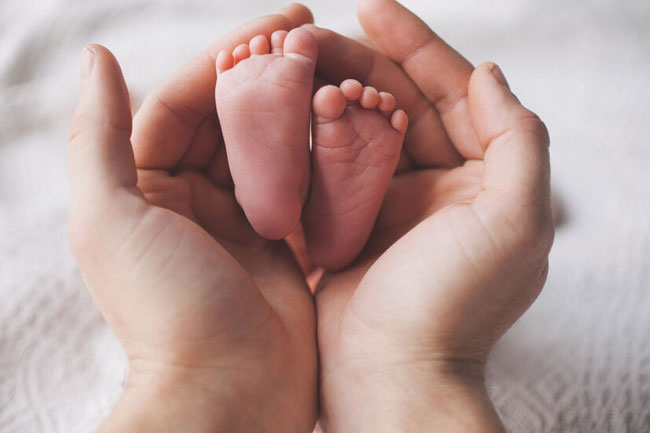Sri Lanka sees decline in birth rates and rise in infant mortality: Experts call for action
February 2, 2025 10:44 am
Nearly 313,000 women become pregnant in Sri Lanka every year, but alarmingstatistics reveal that a significant number of these pregnancies do not result in healthy births.
According to the College of Community Physicians of Sri Lanka, nearly 26,000 women lose their fetuses within the first few months of pregnancy, while around 1,700 babies die in the womb after 28 weeks.
At a media briefing held at the Sri Lanka Medical Association Auditorium in Colombo, the association’s president, Specialist Dr. Kapila Jayaratne, emphasized the need to address the rising rates of pregnancy complications, premature births, and infant deaths.
Infant Mortality
Out of approximately 280,000 live births each year, nearly 20,000 babies are born with low birth weight, many requiring intensive medical care. Tragically, around 2,500 children do not survive their first year of life due to various health complications, according to Dr. Jayaratne
Dr. Jayaratne detailed the leading causes of current infant deaths in Sri Lanka:
Birth defects (46%)
Prematurity (26%)
Birth asphyxia (12%)
Newborn infections (6%)
Moreover, when considering child deaths under the age of five, the number rises to approximately 3,300 annually.
Declining Birth Rates and Rising Deaths
Sri Lanka has witnessed a notable decline in birth rates, dropping from 319,000 in 2019 to 247,000 in 2023, marking a 22-23% decrease. At the same time, the overall death toll across all age groups has surged, from 132,000 in 2020 to 181,000 in 2023.
Despite these challenges, the country has made strides in healthcare, increasing life expectancy from 53-56 years in the 1950s to 73 years for men and 80 years for women today, the doctor added.
Community Health Specialists Push for Preventive Measures
Dr. Jayaratne stressed the importance of preventive healthcare over reactive treatment. He outlined a three-tiered approach:
-Primary prevention: Stopping diseases before they develop
-Secondary prevention: Managing illnesses to prevent complications
-Tertiary prevention: Minimizing damage and disability once a disease develops
He urged society to play an active role in improving maternal and child health, emphasizing that healthcare quality, education, economic status, and social conditions all influence pregnancy outcomes.
Debate on Fatal Birth Defects and Termination Laws
Dr. Jayaratne also addressed that Sri Lanka’s legal stance on pregnancy termination in cases of fatal birth defects. He argued that while other countries allow termination in such cases, Sri Lankan law does not, causing suffering for mothers, existing children, and the healthcare system.
He urged policymakers to take action, noting that this issue has been under discussion for two decades without progress.
Rising Child Suicides and the Role of Social Media
A concerning trend has emerged regarding child suicides, with 133 cases recorded in 2022 and an unofficial estimate of 270 cases in 2023, he added, noting that experts partially attribute this to the negative impact of social media, calling for regulations to protect children from online harm.
Dr. Jayaratne stated that investigations are underway to assess the risks and benefits of social media, with recommendations soon to be presented to lawmakers.














